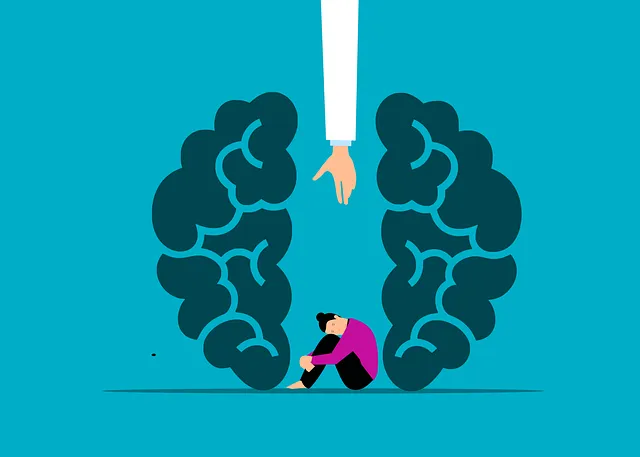Mental wellness program evaluations for institutions like Littleton and Kaiser focus on key metrics such as reduced anxiety/depression symptoms, improved stress reduction methods, enhanced social skills, participant satisfaction, retention rates, and overall functioning improvements. Both organizations differ in their approaches: Littleton emphasizes intensive, personalized care in a residential setting, while Kaiser offers a diverse range of services including medication management and community support. Effective evaluation methods through pre-post assessments, patient feedback forms, and focus groups are crucial for tailoring services to individual needs, refining care, and improving overall mental wellness outcomes.
Mental wellness program evaluation is a crucial aspect of improving patient outcomes and service quality in both outpatient and inpatient settings, such as Littleton and Kaiser. This article delves into the methodologies behind evaluating these programs, focusing on key metrics and measures that differentiate approaches like those offered by Littleton versus Kaiser. By understanding effective evaluation methods, healthcare providers can enhance care delivery and optimize patient experiences.
- Understanding Mental Wellness Program Evaluation: Key Metrics and Measures
- Comparing Inpatient Mental Health Care: Littleton vs. Kaiser
- Effective Evaluation Methods for Enhancing Patient Outcomes and Service Quality
Understanding Mental Wellness Program Evaluation: Key Metrics and Measures

Mental wellness program evaluations are crucial for understanding the effectiveness and impact of interventions aimed at improving emotional healing processes. When assessing such programs, particularly those offered by institutions like Littleton or Kaiser with inpatient mental health services, several key metrics and measures come into play. These include the reduction in symptoms of anxiety and depression, as measured through standardized questionnaires like the PHQ-9 or GAD-7. Additionally, tracking improvements in stress reduction methods and social skills training can provide valuable insights into holistic healing.
Other important factors to consider are participant satisfaction, retention rates, and changes in overall functioning. By evaluating these metrics, mental health professionals can gain a comprehensive understanding of the program’s success in fostering positive mental wellness outcomes. This data-driven approach ensures that resources are allocated effectively and services are tailored to meet the unique needs of individuals seeking emotional healing processes within inpatient settings.
Comparing Inpatient Mental Health Care: Littleton vs. Kaiser

When comparing Littleton’s inpatient mental health care to Kaiser’s, several key factors come into play. Both organizations offer specialized treatment facilities, but their approaches and resources differ significantly. For instance, Littleton focuses on intensive, personalized care within a residential setting, emphasizing individual therapy sessions and structured group activities designed to foster recovery. This approach aligns with the Mental Health Policy Analysis and Advocacy principles of holistic treatment and patient-centered care.
In contrast, Kaiser prioritizes a more diverse range of services, including medication management, outpatient therapy, and community support networks. Their model reflects Mind Over Matter Principles, promoting self-regulation and coping strategies to manage mental illness. Furthermore, Kaiser has been recognized for its proactive Mental Illness Stigma Reduction Efforts, aiming to create a supportive environment that encourages open conversations about mental health. Such comparisons highlight the varied paths toward effective inpatient mental health care.
Effective Evaluation Methods for Enhancing Patient Outcomes and Service Quality

Effective evaluation methods are pivotal for enhancing patient outcomes and service quality within mental wellness programs, such as those offered by organizations like Kaiser in Littleton. By employing robust strategies, healthcare providers can gauge the impact of interventions and tailor services to meet individual needs. One powerful approach involves measuring changes in patients’ coping skills development and mood management abilities. This can be achieved through pre-post assessments, where individuals are evaluated before and after participation in mental health programs, allowing for a clear understanding of progress.
Additionally, stress management workshops organized by these institutions can be assessed using qualitative and quantitative methods. Patient feedback forms and focus groups provide insights into the perceived benefits and areas for improvement. Such evaluations enable organizations like Kaiser to refine their services, ensuring they effectively support individuals in managing stress and promoting overall mental wellness. This continuous assessment process is crucial for maintaining high-quality care and fostering positive patient experiences, ultimately contributing to better health outcomes.
Evaluating mental wellness programs is crucial for improving patient outcomes and service quality, whether through inpatient care like that offered at Littleton or Kaiser. By understanding key metrics, comparing different models, and employing effective evaluation methods, healthcare providers can ensure their programs meet the unique needs of patients and consistently deliver high-quality care. This comprehensive approach, informed by both best practices and innovative strategies, ultimately contributes to enhanced mental wellness outcomes for all.






